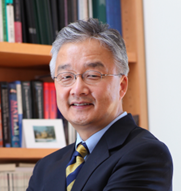
- This event has passed.
MEAM Seminar: “Biomedical Innovations for Global Health Research and Technology (BIGHEART): NOAS, EXODUS, iTEARS, and BOAS”
April 22 at 10:15 AM - 11:15 AM
This presentation will discuss the concept of BIGHEART and present various illustrative examples of this approach. The initial focus will be on NOAS (Nanoscale Optical Antennas) within the context of quantitative life sciences and transformative medicine. NOAS facilitates the visualization of quantum biological electron transfer processes occurring in mitochondria within living cells, supports the precise release of siRNAs with accurate spatiotemporal control, enables the detection of oscillatory communication among living bacteria via extracellular vesicles, and innovates ultrafast photonic PCR technology for enhanced precision in preventive medicine. EXODUS (Exosome Detection via the Ultrafast-Purification System) is meticulously designed to facilitate accurate diagnostics and therapeutic applications through the utilization of exosomes. The effective purification of exosomes from patients’ liquid biopsies enables comprehensive analyses and the advancement of translational medical treatments. iTEARS (Integrated Tear Exosome Analysis via Rapid-Isolation System) allows the detection of protein and miRNA biomarkers, thereby enhancing the diagnostic capability of various diseases through the analysis of tear samples. BOAS (Brain Organoid Analysis System), which integrates biosensors and EEG for real-time, non-invasive monitoring of brainwaves and extracellular vesicles (EVs), was developed to explore the connections between molecular signals and neurophysiological brainwaves. This study critically analyzes and offers insights into the interrelationships among secretomes, electrophysiological brainwaves, and the networks generated from human brain organoids. The in vitro models of BOAS serve as valuable tools for researchers investigating neuropathogenesis, developing treatments for neurodegenerative diseases, and exploring preventive medical therapies by studying the interactions between EVs and brainwaves. Furthermore, the BIGHEART initiative endeavors to create solutions for preventive and personalized medicine that contribute to affordable global healthcare.

Luke Pyung-Se Lee
Professor of Medicine, Brigham and Women's Hospital, Harvard University
Luke P. Lee is a Professor at Harvard Medical School and Senior Investigator at Brigham and Women’s Hospital. He received his BA in Biophysics and Ph.D. in Applied Physics and Bioengineering from UC Berkeley. He joined the faculty at UC Berkeley in 1999 after more than a decade of industry experience. He became the Arnold and Barbara Silverman Distinguished Professor and the Lester John and Lynne Dewar Lloyd Distinguished Professor at Berkeley. He also served as the Chair Professor in Systems Nanobiology at ETH Zürich. He founded the Biomedical Institute for Global Healthcare Research & Technology (BIGHEART). He served as Associate President for International Research and Innovation and Tan Chin Tuan Centennial Professor at the National University of Singapore. He also founded the Institute for Quantum Biophysics at Sungkyunkwan University, Korea. He has authored over 350 research articles, contributed to four book chapters, and holds 60 international patents. He has been honored as a Fellow of the Royal Society of Chemistry and the American Institute of Medical and Biological Engineering. He has received numerous awards, including the IEEE William J. Morlock Award, NSF Career Award, Fulbright Scholar Award, and the HoAm Prize.
